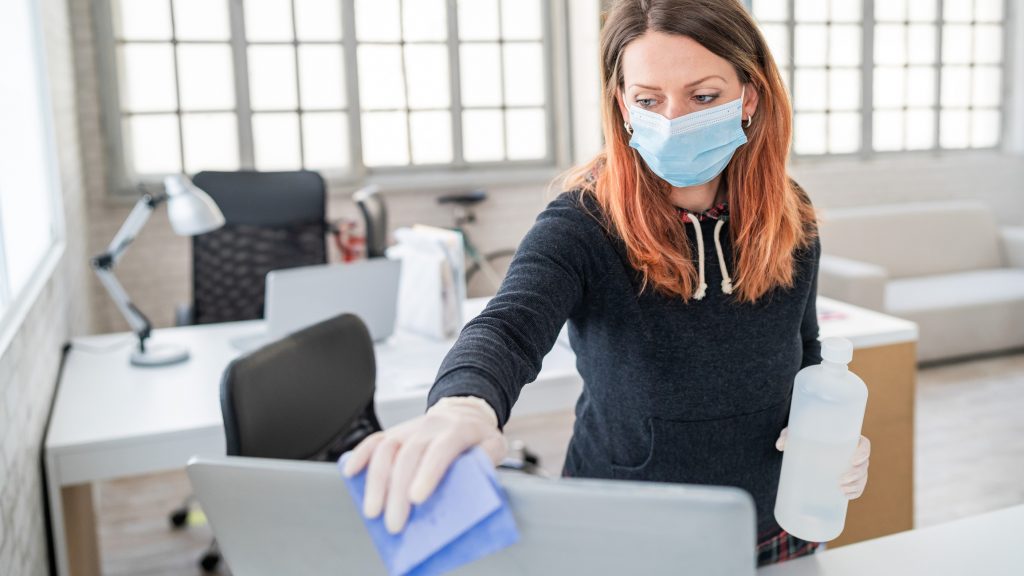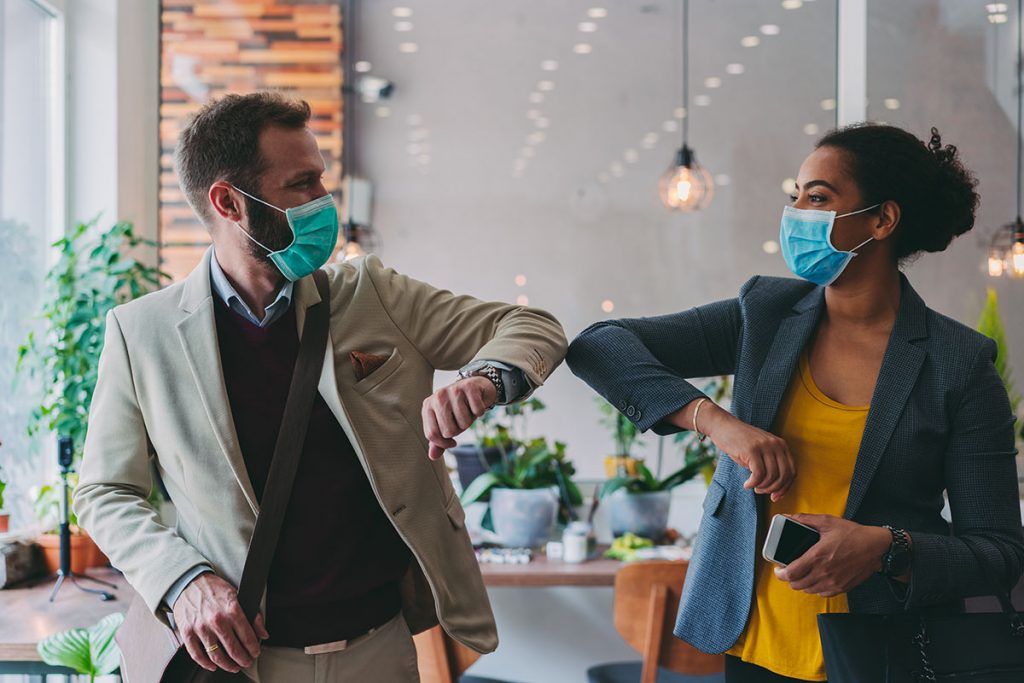BACKGROUND
OREA’s number one priority throughout the COVID-19 pandemic has been your health and safety and that of your clients.
When the Ontario Government declared a State of Emergency in March, OREA strongly urged its Members to immediately cease open houses, stop in-person showings and limit face-to-face interactions with clients and colleagues to only when absolutely necessary. The Government of Ontario followed OREA’s lead and prohibited in person Open Houses on April 3.
OREA successfully lobbied the Ontario Government to include real estate services on the government’s list of essential services. OREA’s success enabled REALTORS® to deliver services to support essential real estate transactions. Ontario REALTORS® were one of a select few professions granted essential service status, a strong indicator of the trust that the provincial government places in our Members. But, it was NOT business as usual.
OREA called upon our Members to counsel clients to postpone any non-essential transactions until after the crisis, conduct services remotely and to utilize technological alternatives such as virtual showings and electronic signing of documents.
We are proud that REALTORS® have conducted themselves as professionals during this crisis and have followed OREA’s guidance to focus on urgent transactions only while minimizing face to face contact. Ontario REALTORS® have put the public good first throughout the crisis.
Earlier this week, the province entered the first stage of the Government’s Framework for Reopening the Province. As the Government of Ontario gradually approves measures to re-open the economy, consumers are looking to Ontario REALTORS® for advice and insight on real estate. They are also seeking guidance on health and safety best practices when buying or selling a home at this time, and on the use of electronic tools. The role and importance of a REALTOR® is greater than ever.
As the province slowly reopens, we must continue to put health and safety first in our interactions with clients, colleagues and communities more broadly. To that end, we are pleased to provide guidance on how to safely and effectively conduct business with your clients during stage one of the Ontario Government’s reopening plan.
REALTOR® CONDUCT DURING STAGE ONE OF THE FRAMEWORK FOR
RE-OPENING THE PROVINCE

Ontario consumers appear to be increasingly interested in real estate transactions provided it is in an environment of common sense and good judgement to protect personal health and safety. Real estate health and safety measures should be focused on helping buyers and sellers engage in real estate transactions while minimizing direct contact. Utilize digital tools first and to the greatest extent possible.
DIGITAL TOOLS
REALTORS® should continue to use digital and virtual technology to interact with clients wherever possible. Let your client know about available alternative marketing opportunities that will allow you to continue to serve them and market their home. Three-dimensional property scans, virtual tours or live tours using Skype or Facebook; and virtual staging to showcase a property are among the great marketing opportunities REALTORS® can offer their clients.
PERSONAL PROTECTIVE EQUIPMENT
When in-person client interactions are required, REALTORS® should have a supply of personal protective equipment (i.e. masks) for themselves and their clients. It is recommended that REALTORS® use face coverings (non-medical mask such as a cloth mask) to reduce the risk of transmission of COVID-19 when physical distancing may be challenging or not possible.
IN-PERSON SHOWINGS
If your client decides that an in-person showing is necessary, conduct as much business as possible virtually before hosting or participating in an in-person showing. If a private in-person showing of a property occurs, all local health officials’ instructions (including those of municipal local health officials) must be followed. Particularly relevant will be guidance around physical distancing, use of personal protective equipment, such as masks, and cleaning and disinfection before and after the showing. 1
Practically, to reduce risk of transmission of the virus, at least the following should be considered in conjunction with all relevant and applicable advice, recommendations and instructions from public health officials:
Know your clients & their families
When deciding whether to proceed with the private showing, consider whether the listing agent, REALTOR® showing the property, homeowner(s), residents or the potential purchasers have a medical condition or immune deficiency or are elderly. Consider also what cleaning and disinfection measures should be taken before and after the showing and what protective equipment should be used.
Replace the Handshake
Limited physical contact is vitally important to prevent the spread of COVID-19. Exercise physical distancing of at least two metres at all times.
FOR THE LISTING REALTOR® / HOMEOWNER:

Clean and Disinfect
It is standard practice for a selling homeowner to present a clean house; today it is even more important that the home is cleaned and disinfected before each showing. Ensure door handles, light switches, counters, cabinet knobs and other high-touch surfaces are targeted. Once a showing is complete, the home should be cleaned and disinfected again.
Wear PPE
The listing REALTOR® and their clients should follow provincial guidance and wear personal protective equipment (PPE), including masks, where social distancing is not possible. This will frequently be the case in a home and REALTORS® should have PPE available for their own use and that of clients.
Entering The Home
Under no circumstances should a buyer ever enter a home without being accompanied by a registrant. In the instance of a showing, the buyer’s representative should accompany their client into the property following physical distancing and PPE standards. With respect to the seller representative’s obligations, they should explain to the seller their rights and seek direction from them about whether they want the seller’s representative to attend showings and other visits, particularly by third parties (i.e. buyers, inspectors etc.). The seller should make an informed decision about how the home is going to be protected, remembering that the seller’s representative is entrusted to look after the best interests of the seller.
Homeowners should not be present during the showing.
Limit Time in the House
If it is necessary to enter a home, listing agents and their clients should limit the amount of time they spend in the home. Conversations with buying agents and prospective buyers should take place outside, and in between back-to-back showings the listing agent should disinfect high-touch surfaces.
Turn on Lights & Open Doors
Open all of the interior doors. Door knobs and light switches are two of the most commonly touched surfaces in a home. The listing agent or homeowner should ensure all lights are on and doors (including closet doors) open so that any viewings can be completed without having to touch these surfaces.
Improve Ventilation
Consider options to improve ventilation in a home when completing showings by opening windows.
Digital Documents
Reduce the number of physical documents passed from one party to another by making all brochures, listing sheets and other documents digital. These should be accessed with a QR Code, AirDrop, link onsite, email or other electronic means. Contracts and forms supporting the sale of the property should be completed on digital platforms.
Space out Showings
Each showing should be scheduled with enough time in between to facilitate a thorough disinfecting of the home and minimize inter-personal contact.
Take Precautions When Transferring Paper Documents
Rely on electronic means first when transferring documents to a client, and vice versa. Where there is no choice but to use paper documents, take precautions. When documents need to be transferred from a client to a REALTOR® or vice versa such as executed agreements, deposit cheques or other documents, the REALTOR® should consider providing a bag/envelope for the documents to be placed into without passing directly from the client to the REALTOR®. Another option is to have drop boxes set up at the brokerage office.
FOR THE PURCHASING REALTOR® / CLIENT

Meet Your Clients at the Property
Don’t offer to pick up your client and drive them to the viewing. Make arrangements to meet them at the property. Maintain social distancing at all times.
Wear PPE
REALTORS® and their clients should follow provincial guidance and wear personal protective equipment, including masks, where social distancing is not possible. This will frequently be the case in a home and REALTORS® should have PPE available for their own use and that of clients.
Keep it Quick
Keep the viewing as short as possible to minimize risk.
Clean & Sanitize
Before and after entering a home, the agent and clients should wash their hands with warm water and soap and/or use an alcohol-based hand sanitizer.
Limit the Number of Individuals in an Elevator
If the property is located in a building with an elevator, refer to the building’s rules on the number of individuals allowed in an elevator. If physical distancing in an elevator is not possible, limit the number of people in an elevator to one or two people, or to members of the same family.
Limit the Number at the Showing
Viewings should be limited to the parties to the contract only. Clients should be strongly discouraged from including extended family or children in the showing. Public health limits on the number of people in a gathering must be strictly followed.
Don’t Use the Bathroom
Do not use the bathroom during the showing.
Hands to Yourself
Refrain from touching any surfaces and other items in the home during the showing, including furniture, appliances, cupboards, etc. Have your client leave their belongings in their car.
It is also important to note the Real Estate Council of Ontario’s recommendation “that brokers and salespeople follow the direction of health officials by limiting showings to situations where they are absolutely necessary.” You can read more about RECO’s position here at https://www.reco.on.ca/covid-19/#faq. Thank you for your ongoing help in keeping each other and your clients safe. As we help support consumers’ growing interest in real estate transactions during Stage One, let’s continue to be diligent, lead with virtual business practices to the
greatest extent possible and follow the direction of public health officials.
We trust this is helpful and should you have any questions or concerns, please write to us at info@orea.com.
Disclaimer. The information contained in this e-mail is not meant to be relied upon as legal advice by REALTORS®, or others. Members wishing further clarity or advice should seek independent legal advice specific to their circumstances. Due to the quickly changing regulatory environment during the COVID-19 emergency, this document may not be current or accurate by the time it is read.
The trademarks REALTOR®, REALTORS®, and the REALTOR® logo are controlled by The Canadian Real Estate Association (CREA) and identify real estate professionals who are members of CREA.
NOTES:
1 The following link to ‘Public Health Ontario’s Covid-19 Public Resources’ provides specific advice with respect to, amongst other things, mask use, physical distancing, cleaning and disinfecting and situations where self-isolation is necessary:
The Ontario Government’s Resource Page (link below) includes guidance on such things as the use of personal protective equipment, appropriate controls and distancing issues, etc…
https://www.ontario.ca/page/resources-prevent-covid-19-workplace#section-1
Please note that local (municipal) public health officers may have augmented any advice, recommendation and guidance provided by the public health officials of the Province of Ontario.
It is also crucial to note that COVID-19 advice, recommendations and instructions, are regularly revised and so REALTORS® must take all appropriate steps to inform themselves with respect to the current advice, recommendations and instructions.